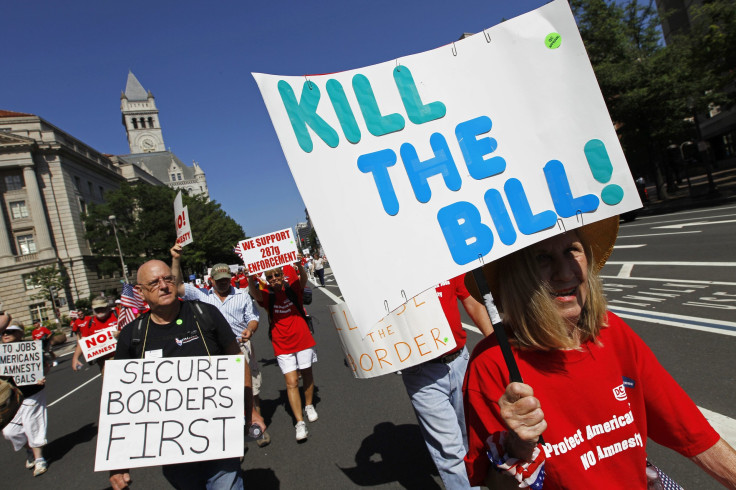Immigration Reform 2013: White House Says Work Continues After Recess

The White House isn’t ready to call it quits on a 2013 immigration reform bill.
In a blog post on Friday, Cecilia Muñoz, director of the Domestic Policy Council, wrote that the work to get reform legislation out of Congress and onto President Barack Obama’s desk continues when lawmakers return from August recess.
Muñoz wrote that while Obama remains focused on growing the economy and strengthening the middle class, it is also important for Congress to ensure important goals are met.
“Immigration reform is one of the most vital -- it has bipartisan support all around the country -- and the strong vote in the Senate puts it within our grasp,” the post read.
Muñoz called on lawmakers to rededicate themselves to the work ahead.
“When Congress returns, I look forward to making common sense immigration reform a reality,” she wrote.
The comprehensive immigration reform bill that left the Senate’s chamber in June with 68-32-vote count has largely been ignored in the House. It contains a path to citizenship for the estimated 11 million undocumented immigrants presently in the country. Speaker John Boehner, R-Ohio, has said the measure will not be brought to the floor unless a majority supports it.
Meanwhile, the House Judiciary Committee has passed a handful of reform bills that are geared more toward border security and interior enforcement of the immigration laws. GOP leaders have said they would consider a proposal to provide legal status to children brought to the country illegally. However, at this point it is only rhetoric, with not much detail revealed, and some Republicans are nervous about the children's bill.
Additionally, the House bipartisan “Gang of Seven” is positioning to release its comprehensive reform bill in October, when they believe the outlook will be more favorable to a bipartisan solution in the lower chamber.
In the blog post, Muñoz essentially tries to keep overhauling the status quo in the public arena, reminding that the nonpartisan Congressional Budget Office, or CBO, has projected an economic boost should reform be passed this year.
The CBO has predicted a decrease in illegal entry and more than $170 billion in deficit reduction if the Senate-passed immigration reform bill is enacted into law.
© Copyright IBTimes 2024. All rights reserved.












